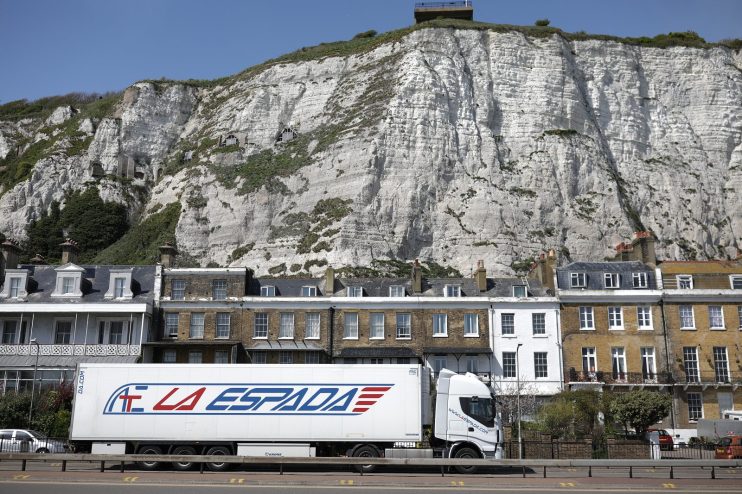Exclusive: Government offshoring customs jobs to prep UK firms for Brexit

A government grant programme is paying for overseas workers to help British logistics firms prepare for Brexit.
A loophole in the HM Revenue and Customs’ (HMRC) £50m grant programme means taxpayer funds can be given to train overseas workers as long as their company has a UK base.
The Customs Grants Scheme, which is being administered by accounting firm PwC, sees the government pay companies to hire and train customs agents in order to help British firms post-Brexit.
Customs agents and customs brokerage firms are hired to help logistics companies organise border crossings.
The government estimates that the UK needs at least 50,000 of them to prepare UK companies for post-Brexit border changes, which marks a significant increase from the amount operating pre-Brexit.
Before the Open newsletter: Start your day with the City View podcast and key market data
HMRC confirmed to City A.M. today that overseas customs agents from any country in the world can be given government money as a part of its grant scheme as long as their company has also been “established” in the UK for 12 months.
The funding can be used for recruitment, training and wages for new employees, but the agent has to only work with UK clients.
This means that multinational firms offering customs brokerage services can take the government cash and use it on cheap labour overseas.
London Chamber of Commerce and Industry chief executive Richard Burge said it was “a disgrace”.
“It very much appears to go against one of the principles of Brexit,” he said.
“It leaves me wondering why would a multinational company choose to employ a UK apprentice to deliver UK customs work, when the government will help fund the creation of a role overseas to do it in a country where a day costs what an hour would here?”
The government estimates that British companies will have to fill out an extra 215m customs declarations forms a year at a cost of £7bn after the UK leave’s the EU’s single market and customs union next year.
There is also still uncertainty about what will be required for UK businesses operating in Europe as a UK-EU trade deal has still not been closed.
Tesco chief executive Ken Murphy told Sky News today that the retail giants’ largest challenge right now is the movement of its goods next year.
“That is the one area where we really would urge the government to give us some clarity and to allow us to prepare even better for the end of December,” he said.
A Cabinet Office document released earlier this year warned 7,000-long lorry queues could form at Dover if businesses are unprepared for next year’s changes.
Road Haulage Association boss Richard Burnett told City A.M. this week that there would be chaos at the border deal or no deal.
He also said Cabinet Office minister Michael Gove, who is responsible for Brexit preparations, does not know how many customs agents have been recruited out of the 50,00 needed.
“The complexity of what needs to be carried out between now and the end of the year is blowing businesses minds,” he said.
“This is going to be a mess unless you can negotiate a transition period…if not this is going to be an incredibly bumpy ride and it’s going to have a major impact on trade,” he said.
When asked about the HMRC grants scheme loophole, a government spokesperson said: “We welcome any new entrant into the customs intermediaries market that can help to deliver the additional capacity that we need to help support traders when the transition period ends.
“Applicants must meet a range of eligibility criteria, including being established in the UK, at both the time of application and payment of the grant.”